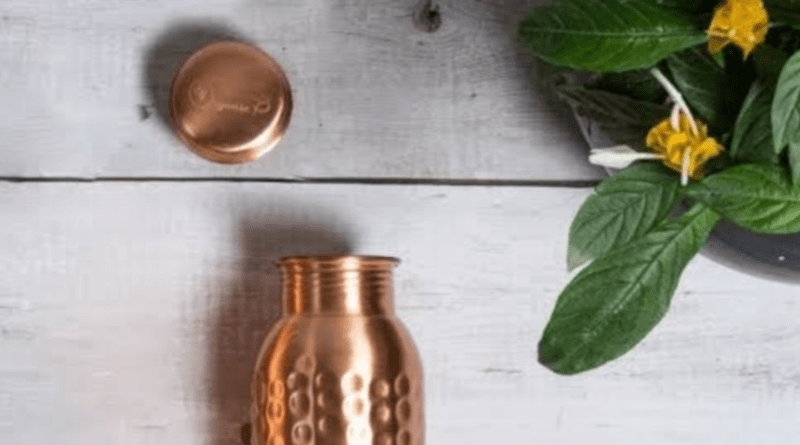The new study says: copper bottle water harming your liver.
Since drinking water from copper bottles is to provide health benefits, copper bottles have grown in popularity.
The synthesis of red blood cells, the upkeep of strong bones, and the development of connective tissue are just a few of the biological processes that copper is necessary for.
Utilized since antiquity:
Since ancient India, people have cooked and served meals using copper utensils and containers. It is said to provide health advantages and has long been a part of traditional Indian and Ayurvedic therapies. The amount of copper taken through these behaviors is usually far less than the amount absorbed through drinking water from a copper bottle, but it’s important to remember that they include the use of premium copper vessels that are regularly cleaned and maintained.
To what extent is copper safe to eat?
An expert’s opinion states that consuming water from a copper bottle can safely provide up to 1.3 milligrams of copper per day. Nevertheless, a lot of copper water bottles on the market today leak more copper than this, especially if they aren’t kept and cleaned correctly.
The world Health Organization (WHO) has established 2 milligrams per litre as the maximum permissible copper concentration in drinking water. But according to some research, this limit may not always be reached by the amount of copper in water from copper bottles, particularly if the water is kept in the bottle for a long time.
How may the harm be avoided?
Experts advise people to minimize their daily consumption of copper and to refrain from using copper bottles as their only source of drinking water in order to prevent any potential harm that copper bottles may bring. Additionally, they advise routinely cleaning copper bottles to avoid the buildup of copper oxide, which can raise the concentration of copper in the water.
To sum up :
Drinking water from copper bottles may have some health benefits, but it’s important to be aware of the risks of copper toxicity and take the necessary precautions to protect the liver and kidneys. Experts recommend lowering daily copper consumption, avoiding using copper bottles as your only source of drinking water, and taking care of your copper bottles to minimize the accumulation of copper oxide.




